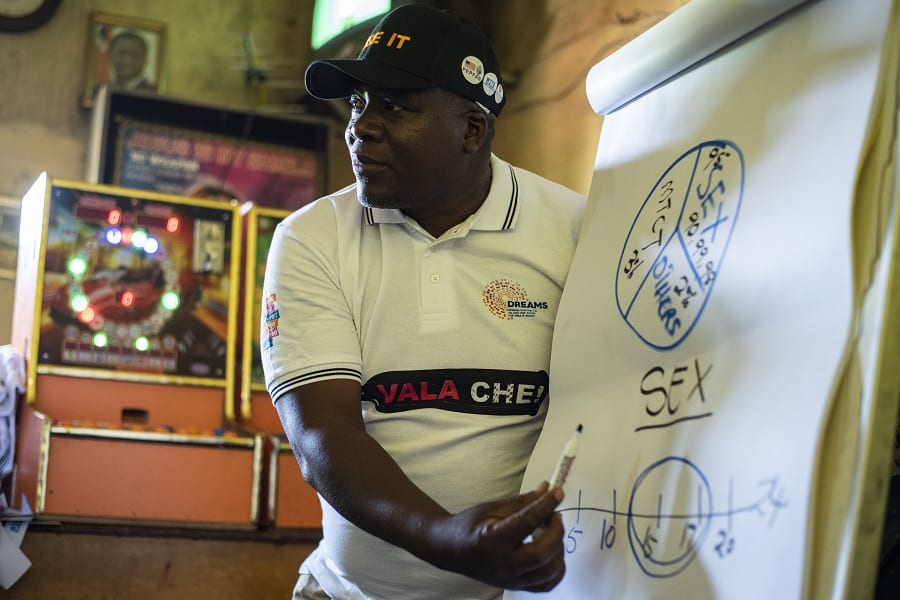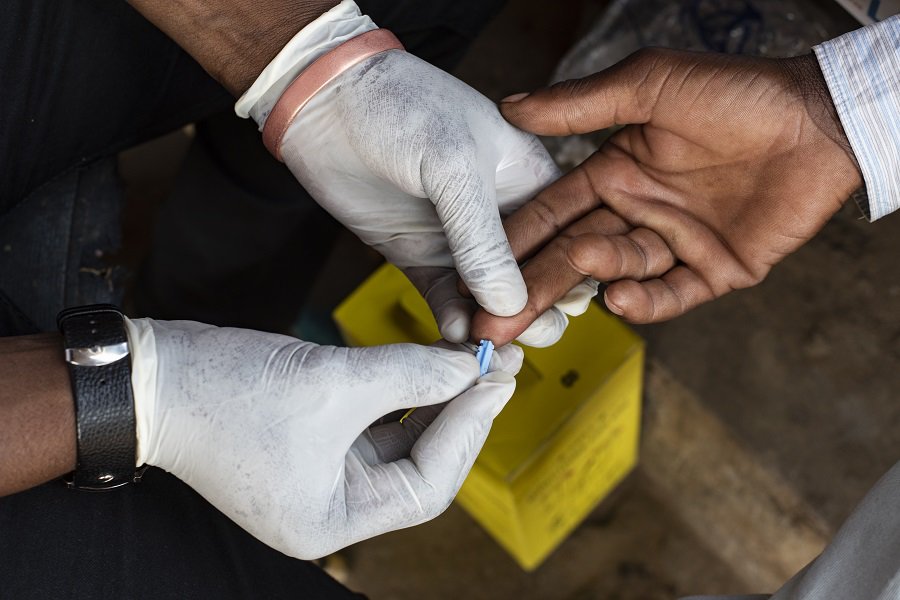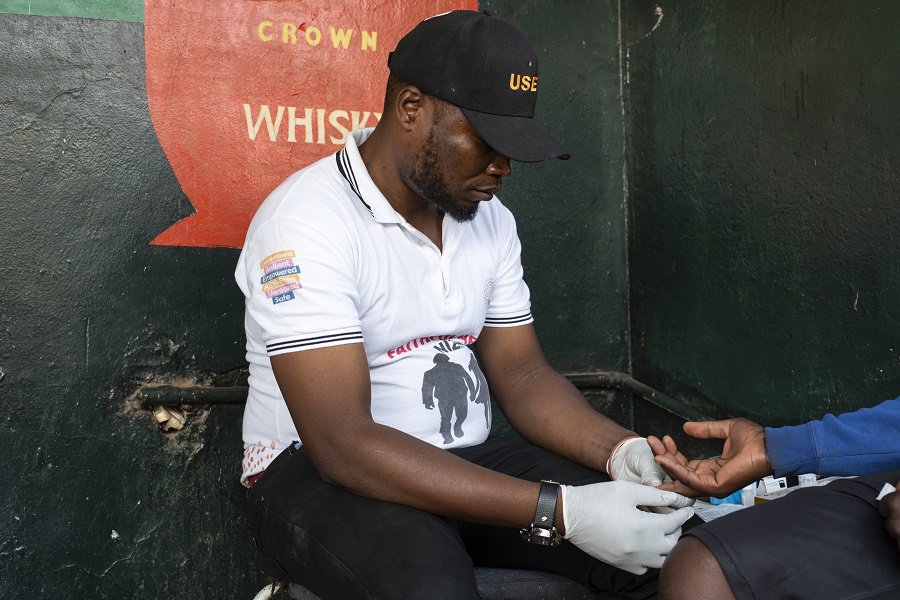This website uses cookies so that we can provide you with the best user experience possible. Cookie information is stored in your browser and performs functions such as recognizing you when you return to our website and helping our team to understand which sections of the website you find most interesting and useful.
Every weekend, outreach workers from Afya Mzuri, an NGO in Zambia, are out in their communities to lead HIV prevention sessions as part of the DREAMS Innovation Challenge (DREAMS-IC) ‘Insaka’ program, which is funded by PEPFAR and managed by JSI. In the cultural traditions of the Bemba and other Zambian groups, an ‘Insaka’ is a special forum through which the community (generally of men) gathered to pass on wisdom and discuss issues of importance to the community.
In 2017, Afya Mzuri revitalized the cultural practice of ‘Insaka’ to pass on wisdom and support for greater male involvement in health and HIV prevention– issues of great importance to Zambia today. The project targets men with HIV prevention education, testing and referrals to prevention services like voluntary medical male circumcision through bars around Lusaka.
In Zambia, about twelve percent of the population lives with HIV[1]. Men are less likely to practice HIV prevention behaviors, access treatment, and care and be retained in care.[2] The Insaka increases men’s awareness of HIV prevention and promotes the adoption of HIV prevention behavior.
One of the places in which ‘Insakas’ are held is the Kabwata depot, where men gather to play pool and drink. During ‘Insakas’, project staff and volunteer peer educators discuss prevention and respond to questions about HIV. The men present also receive condoms, informative flyers, and referrals to health services.
HIV testing is also offered during the Insakas, and anyone who tests positive is referred to a health center for HIV treatment and care.
Kebby has been conducting HIV tests for the past 10 years and has noticed a huge increase in HIV awareness. According to him, HIV awareness has improved and more men are getting tested for HIV. In fact, 87% of participants that Afya Mzuri surveyed correctly identified ways of preventing HIV and rejected misconceptions about its transmission.
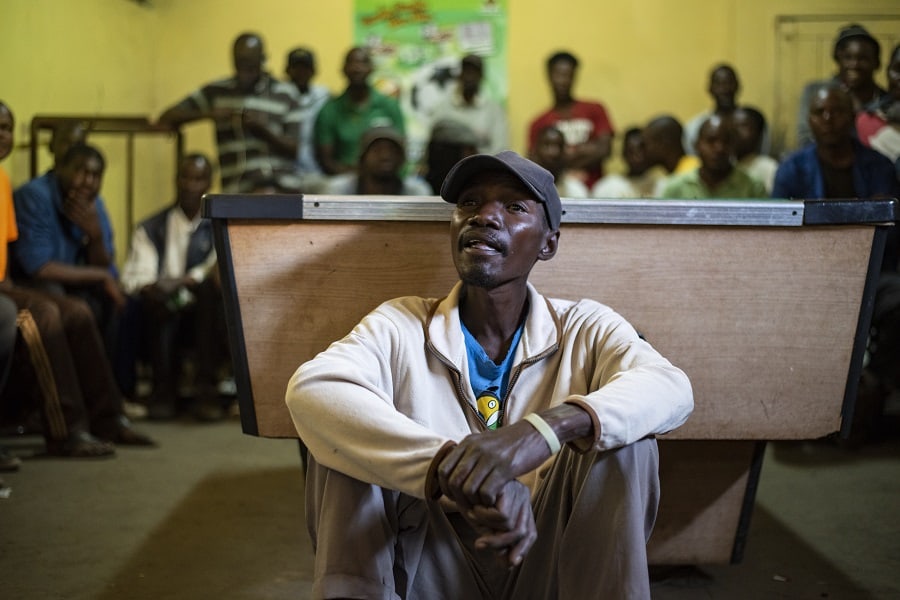
Meet James, a participant of the ‘Insaka’ program. He is a car-washer, and during his free time, he likes to play pool and drink. James heard about the program from one of his friends. He decided to join because he was once affected by tuberculosis and is now careful about his health. He likes that the program is informing people on methods to stay HIV-free.
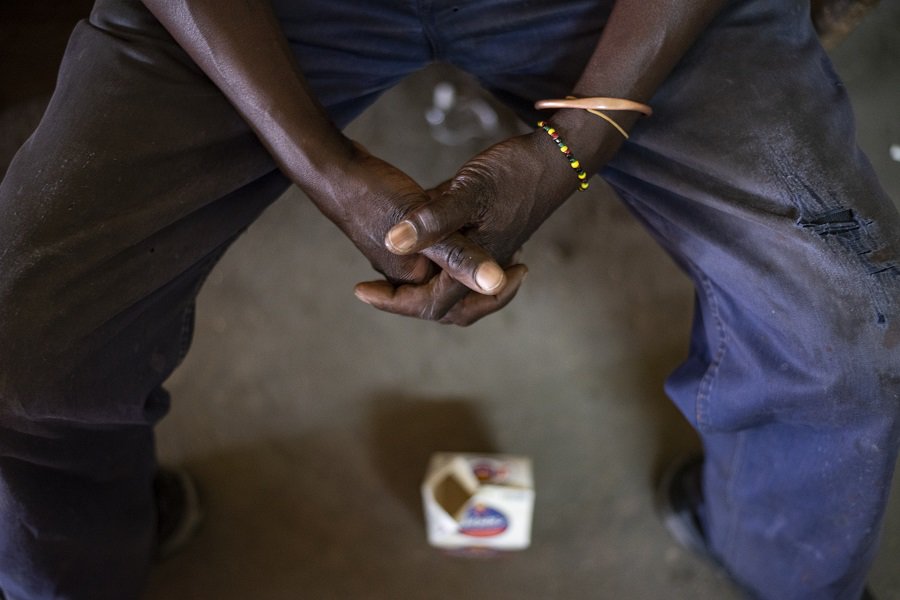
Another participant of the ‘Insaka’ program who is HIV positive shares, “In one of the first sessions I attended, I received advice regarding my HIV treatment. The program has helped me cope with my situation, and I feel more free and stronger regarding my [HIV] status.”
In addition to leading outreach sessions at the bars, Afya Mzuri educators conduct outreach in their own communities, where they promote the ‘Insaka’ program.
Rose from the outreach team asks Jeff to join an ‘Insaka’ session.
Jeff, 22, is concerned about HIV and is ready to attend the ‘Insaka’. Jeff is sexually active and shares that sometimes he does not use condoms. He is curious about his HIV status and nervous about the results. He hopes the ‘Insakas’ will be a place for him to share his concerns and learn about ways to protect himself from HIV infection.
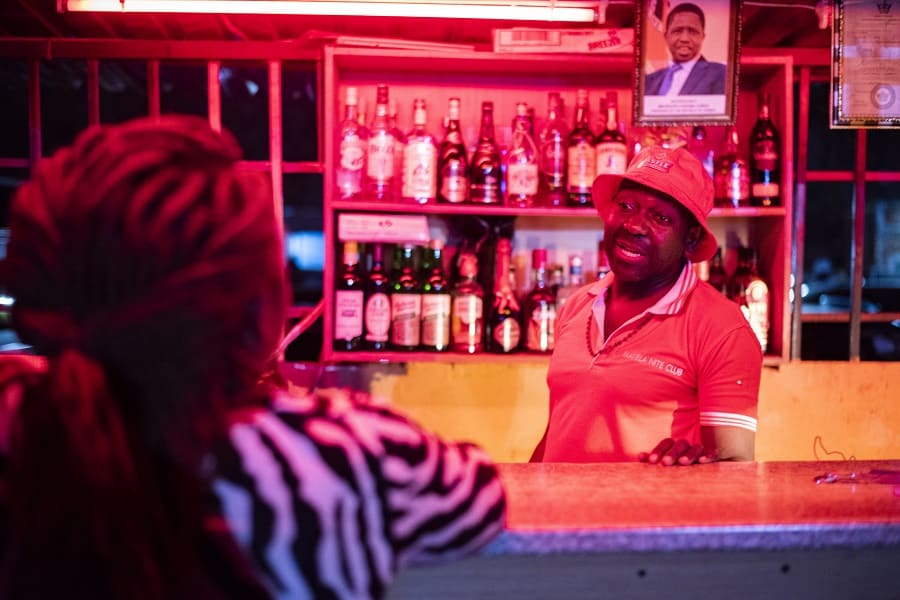
Lama believes that the ‘Insaka’ program is good for the community. “People who are drunk are careless. They don’t use condoms. It’s good that there is a program like this to help teach them about HIV,” says Lama.
In two years, Afya Mzuri has reached a total of 5,814 men through community mobilization activities.
[1] http://www.unaids.org/en/regionscountries/countries/zambia
[2] http://www.unaids.org/sites/default/files/media_asset/Global_AIDS_update_2017_en.pdf
Photo credit: Lambert Coleman / Hans Lucas


